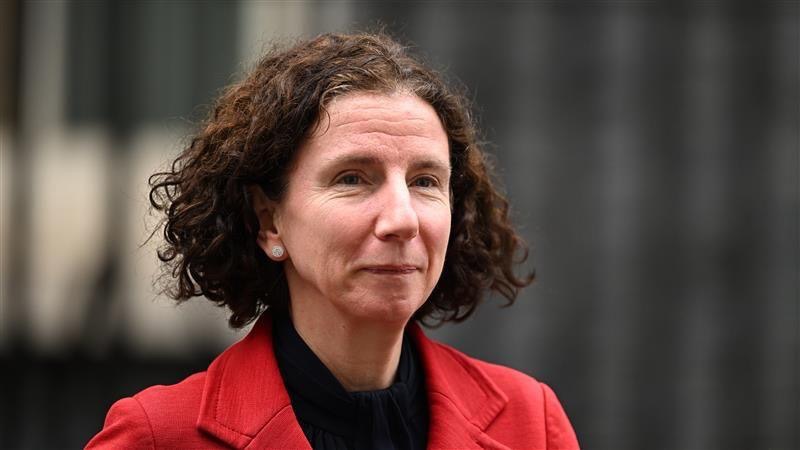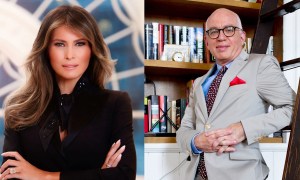Anneliese Dodds, the International Development Minister, has resigned in protest over the prime minister’s controversial decision to cut the UK’s international aid budget to fund an increase in defence spending. The resignation highlights growing tensions within the Labour Party, with several MPs expressing their opposition to the government’s stance.
In a letter to Labour leader Sir Keir Starmer, Dodds criticized the cuts to international aid, warning that they would “remove food and healthcare from desperate people, deeply harming the UK’s reputation.” She added that the cuts were aligned with similar actions by President Trump’s administration, undermining the UK’s global standing.
 Credit: AFP
Credit: AFP
Dodds delayed her resignation until after Prime Minister Starmer’s meeting with President Trump, explaining that it was important for the government to present a united front ahead of the diplomatic visit. However, in her resignation letter, Dodds emphasized that the decision to reduce the international aid budget from 0.5% of gross national income (GNI) to 0.3% by 2027 would have serious consequences. She warned that the cuts could lead to the UK’s withdrawal from key African, Caribbean, and Western Balkan nations, as well as a diminished voice in multilateral organizations like the G7, G20, and World Bank.
In her letter, Dodds expressed her sadness over having to resign but made it clear that she could not support a policy that would harm the most vulnerable. She argued that while she supported increased defence spending, this should not come at the expense of aid commitments. She had expected a more balanced approach, which would involve collective discussions on fiscal rules and taxation, but the prime minister had decided to let the Overseas Development Assistance (ODA) absorb the entire cost of increased defence spending.
UK Defence Spending and International Aid: A Controversial Shift
Prime Minister Sir Keir Starmer’s decision to shift aid funds towards boosting defence spending comes amid increased pressure from international allies, particularly the US, to spend more on defence. While the prime minister has defended the cuts as necessary, claiming that “conflict is the biggest driver of migration and poverty,” Dodds and other critics argue that it is a false economy that will only destabilize global security.
The move has sparked significant backlash from international development charities and members of the Labour Party, including Labour MP Sarah Champion, who chairs the international development committee. Champion stated that cutting aid to fund defence spending would “only make the world less safe.”
Labour MP Diane Abbott also voiced her strong opposition, calling the cuts “shameful” and questioning why other ministers had not followed Dodds in resigning. Dodds’s departure further intensifies the internal rift within the Labour Party, with some MPs viewing the decision as contradictory to their core values of global solidarity and aid.
Conservative leader Kemi Badenoch, while disagreeing with the prime minister on many issues, expressed her support for the decision to reduce the foreign aid budget to fund defence. In contrast, Liberal Democrat international development spokesperson Monica Harding praised Dodds for making the “right decision” and warned that cutting international aid would leave a vacuum that countries like Russia and China would exploit.
Deputy Prime Minister Angela Rayner expressed regret over Dodds’s resignation, acknowledging that the decision to cut aid was difficult, but ultimately defending the prime minister’s position on increasing defence spending.
Anneliese Dodds, who has represented Oxford East since 2017, has been a prominent figure within the Labour Party. She served as Shadow Chancellor under Sir Keir Starmer’s leadership but was later demoted to the women and equalities brief following the party’s poor performance in the 2021 local elections. Since July 2024, Dodds has held the position of International Development Minister, attending cabinet meetings despite not being an official cabinet minister.
Dodds’s resignation marks the fourth ministerial departure from Starmer’s government, following the resignations of Louise Haigh, Tulip Siddiq, and Andrew Gwynne.
Anneliese Dodds’s resignation underscores the deep divisions within the Labour Party over the prime minister’s decision to prioritize defence spending over international aid. The long-term impact of these cuts remains uncertain, but the decision has certainly raised questions about the UK’s commitment to global development and humanitarian assistance.
In the coming months, it will be crucial to watch how the Labour Party reconciles these internal differences, especially with increasing international scrutiny over its foreign policy stance.



















